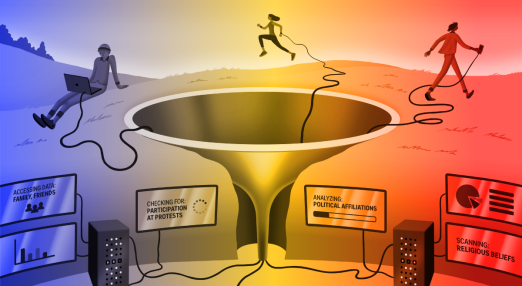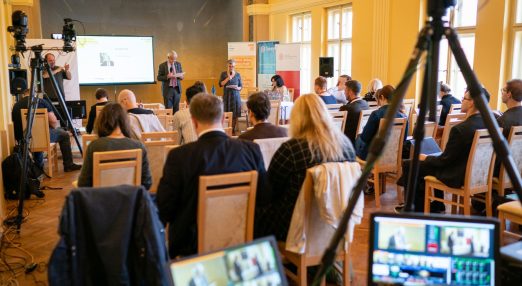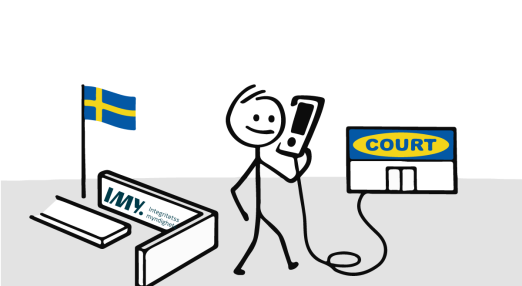access to data
Filter by...
-

CJEU saved the HADOPI: what implications for the future of data retention in the EU?
The Court of Justice of the European Union judgement on the HADOPI case (C-470/21) is significant for the ongoing debate on mandatory retention of metadata, such as traffic and location data. EDRi provides key takeaways and what they mean for the upcoming data retention legislation by the European Commission.
Read more
-

European Commission discusses “Going Dark”: Behind closed doors
EDRi and 20 organisations call on the High Level Group on Access to Data for Effective Law Enforcement for greater transparency and participation of all stakeholders.
Read more
-

Bits of Freedom monthly update on human rights & tech: April 2023
Read through the most interesting developments at the intersection of human rights and technology from the Netherlands. This is the fourth update in this series.
Read more
-

Open letter: e-Evidence package lacks appropriate safeguards, EU Parliament must reject it
Civil society, doctors, lawyers and journalists associations and internet service providers are calling on MEPs to reject the so-called “e-Evidence” package during the plenary vote on June 13 because the proposed system of cross-border access to data in criminal matters would severely undermine fundamental rights.
Read more
-

Government bans TikTok (sort of), Facebook has a bad day in court, and civil society organisations mobilise against Big Tech
Read through the most interesting developments at the intersection of human rights and technology from the Netherlands. This is the third update in this series.
Read more
-

New Romanian cybersecurity law in force despite heavy criticism
The Constitutional Court of Romania declared the new cybersecurity law constitutional despite criticism from civil society about the repercussions for investigative journalists,security companies, and for regular citizens.
Read more
-

Czech online state services without Google Analytics: thanks to IuRe
The Czech organisation Iuridicum Remedium (IuRe) sent an open letter to the Ministry of Health in June 2021. It was mainly about the vaccination system, but its impact is much bigger: many state websites are getting rid of Google Analytics and thus taking more account of user privacy.
Read more
-

Europol management board in breach of new rules as soon as they came into force
The EU’s police agency, Europol, has landed itself in trouble again. Statewatch has now revealed that the agency’s management board was in breach of the new rules governing the agency as soon as they came into force in June.
Read more
-

People working in the Czech media do not trust technology companies, they are also concerned about artificial intelligence decision-making
These findings come as a result of a survey conducted in the summer of 2022 as part of the Promoting human rights in the digital era project. The digital legal organisation and an EDRi member in the Czech Republic IuRe (Iuridicum Remedium) also took part.
Read more
-

GDPR Rights in Sweden: Court confirms that authority must investigate complaints
The Stockholm administrative court held that a complainant under Article 77 GDPR has the right to request a decision from the Swedish Data Protection Authority (IMY) after six months.
Read more
-

New Europol rules massively expand police powers and reduce rights protections
The new rules governing Europol, which came into force at the end of June, massively expand the tasks and powers of the EU’s policing agency whilst reducing external scrutiny of its data processing operations and rights protections for individuals.
Read more
-

Europol is going to collect a massive collection of intimate conversations from European youngsters
This story begins with the creation of a new European agency, but ends with one of the world's largest databases of private chats and images shared by European youngsters—built by the police.
Read more
